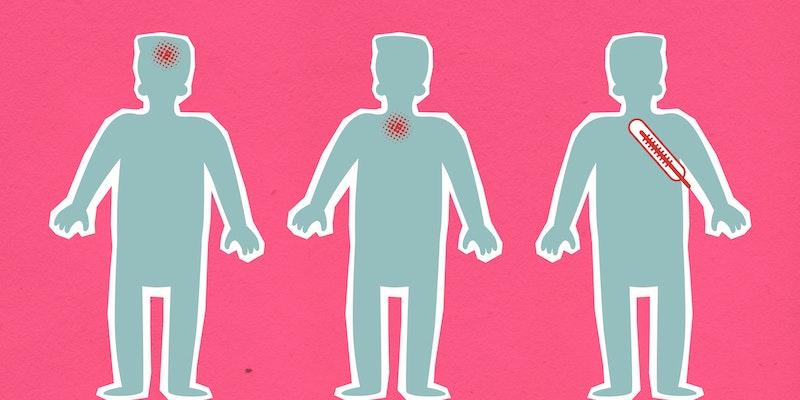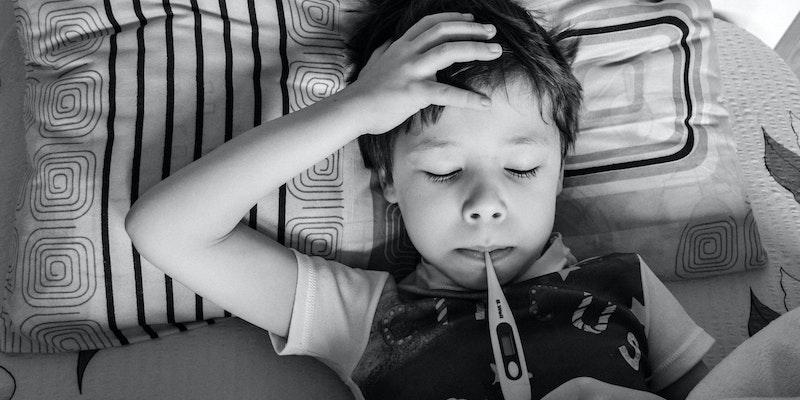Sneezing, coughing, breathing polluted air, or inhaling foreign items are all potential causes of pneumonia, a respiratory illness spread through the airways. General symptoms of pneumonia include:
- Rapid breath
- Shallow breath
- Coughing yellow mucus
- High fever
- Painful breathing
It might be challenging to diagnose pneumonia accurately because its symptoms are very much like other respiratory infections. Pneumonia, because it causes damage over a more extended period, can also be a factor in the onset of lung cancer or other lung disease. Long-term lung damage can result from pneumonia because of the inflammation and pus that can fill them.
Symptoms and Signs of Pneumonia

The symptoms vary with the kind of it, the age of the person, and other factors. Here are different symptoms of pneumonia depending on various factors and the nature of the disease.
Symptoms of Bacterial Pneumonia
The most prevalent form of pneumonia, bacterial pneumonia, tends to be more severe than other varieties, with symptoms requiring medical attention. The onset of bacterial pneumonia symptoms can be incremental or sudden. Some of these symptoms are:
- High fever of 105 F
- Sweating and swiftly increased breathing and pulse rate.
- Due to a lack of oxygen in the circulation
- A bluish color in the skin.
- The mental state of a patient may be disoriented or delirious.
How is Bacterial Pneumonia Caused?
Bacteria enter the airways and then multiply, causing bacterial pneumonia. It can occur independently or after another ailment, like a cold or the flu. Individuals at increased risk for pneumonia may:
- Be recuperating after the operation
- Have compromised immune systems
- suffer from respiratory illness.
Doctors categorize bacterial pneumonia according to whether it originated inside or outside a hospital.
What Factors Increase the Likelihood of Bacterial Pneumonia?
These factors increase the risk rate of bacterial pneumonia.
- Smoking
- working in a highly polluted environment,
- Residing or working in a hospital or nursing home.
Symptoms of Viral Pneumonia
Viral pneumonia symptoms typically worsen gradually and may not be severe initially.
- The most typical pneumonia symptoms are:
- Chilling shivers
- Coughing up mucus or even bloody mucous is possible
- A fever
- Breathlessness (which may only occur during physical exertion).
Additional Symptoms Include
- Confusion
- Excessive perspiration and cold epidermis
- a painful headache
- Appetite loss
- Severe chest pain that worsens with prolonged breathing or coughing
- A lack of energy.
This kind of lung infection is not curable by antiviral medicines. Some antiviral medications may be effective against pneumonia caused by influenza, coronaviruses, and herpes viruses.
If the condition is detected early, you can use these remedies.
- Oxygen inhalation
- Nebulizer
- Corticosteroid pharmaceuticals
- Augmented fluids
Symptoms of Pneumonia in Infants
Symptoms may differ across populations. Infants and newborns may not exhibit signs of pneumonia. Alternatively, they may vomit, have a fever and congestion, or appear agitated, ill, exhausted, and lacking energy.
With age and immunity system, the symptoms of pneumonia vary. Frequently, children experience one or more of the following:
- High fever
- Labored breathing
- Your child's breathing will become strained,
- Younger babies may bob their heads when breathing, cough, irritability
- Fatigue
- Chest pain
- Abdominal (tummy) aches or pain.
When to See a Physician?
You must see a doctor if you feel that your child is suffering from pneumonia. Generally, your child will not need any tests, but a doctor may prescribe a blood test or X-ray to diagnose pneumonia.
How is Pneumonia Diagnosed in Children?

By examining the child's breathing patterns and listening to the child's airways, healthcare professionals can diagnose pneumonia through a physical exam. Occasionally, chest X-rays or blood tests are the ways to interpret.
In countries with weak health care systems (few physicians, lack of access to chest x-rays and laboratories), health workers frequently count the child's breaths per minute to diagnose pneumonia. For instance, a five-month-old infant who takes 50 breaths per minute inhales too quickly and may have pneumonia. Typically, they have a faster breathing rate than older children.
Symptoms of Pneumonia in Adults and Older People
Occasionally, older individuals with pneumonia experience sudden changes in mental clarity. People with a medical history or a chronic disease before pneumonia increase the risk of pneumonia in seniors. Weakened immune systems and susceptibility due to other conditions, such as cardiopulmonary disease or diabetes, increase the risk of pneumonia in the elderly. If a senior exhibits symptom of influenza or a respiratory infection, treatment is necessary to prevent the onset of pneumonia.
Among the possible symptoms of pneumonia are:
- Pain in the chest when inhaling or coughing
- Coughing up mucus
- A lack of energy
- Fever, sweat, and shivers
- Nausea, vomiting, or loose stools
- Insufficiency of oxygen
However, typical symptoms such as a cough, shivers, and fever are less common in older people, who may exhibit confusion, disorientation, delirium, or a lower-than-normal body temperature instead of a fever.
Age-related Complications of Pneumonia
Those diagnosed with pneumonia are at a greater risk for respiratory failure, necessitating mechanical ventilation, septic shock, and death due to pneumonia and its complications.
Treatments for Pneumonia
Pneumonia treatment varies on risk factors and severity. Many pneumonia patients take medication and recuperate at home. If pneumonia reaches a dangerous state, then a hospital is a requirement because this can be cured in the ICU.
Medications
Your doctor will give you medical advice per your health condition, age, and the stage of pneumonia in your body.
Domestic management
You can deal with pneumonia at home with a medical assistant by using medicine as prescribed and using warm beverages if the symptoms are not that mild.
Antibiotics
Bacterial pneumonia treatment includes antibiotics. Most antibiotic patients feel better after one to three days. However, follow your doctor's antibiotic instructions. Your pneumonia may return if you quit too soon.
Antiviral medication
- Antiviral medications may treat viral pneumonia. These drugs are not effective against all pneumonia viruses.
- For fungal pneumonia, antifungals are used.
- Over-the-counter medications may be advised to relieve temperature, muscle pain, and breathing.
Hospital management
If your pneumonia is severe, you may be hospitalized to get antibiotics and fluids via IV. Increasing blood oxygen with oxygen treatment is another option—a ventilator is needed for severe pneumonia.







